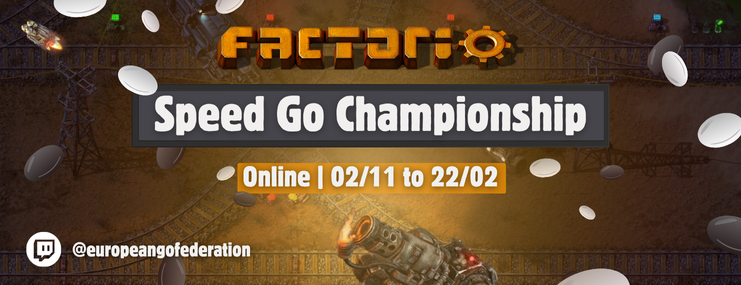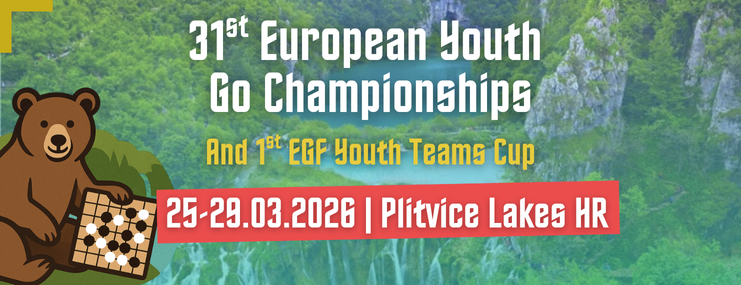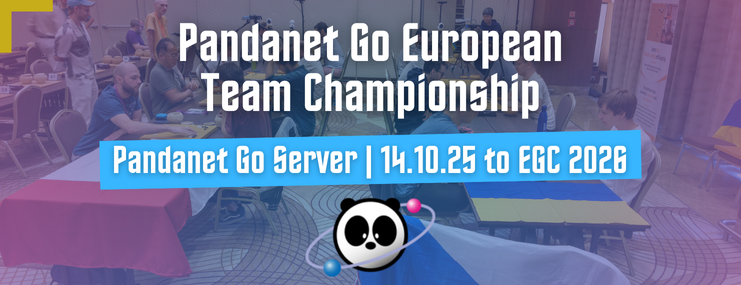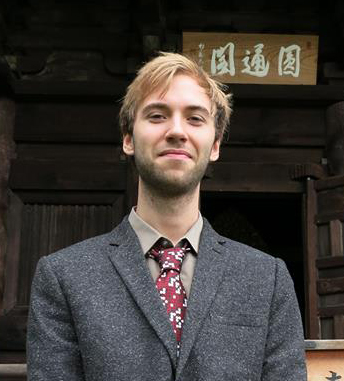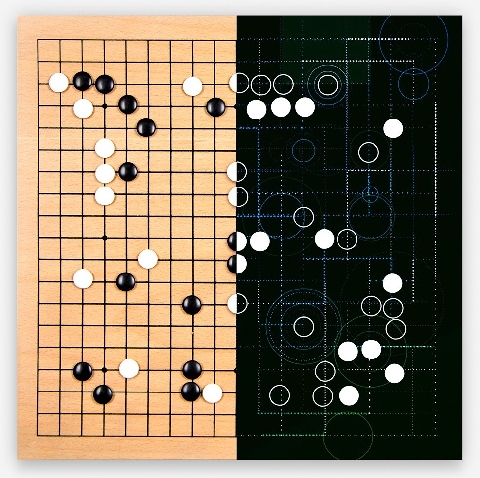
The matches that took place from March 9-15 this year between the computer program AlphaGo and Lee Sedol 9p, made for a historical go event. The bitter sweet news that a world class player had lost to a computer for the first time in history, changed the game forever. Or has it?
Game records for reference:
AlphaGo - Lee Sedol game 1
AlphaGo - Lee Sedol game 2
AlphaGo - Lee Sedol game 3
AlphaGo - Lee Sedol game 4
AlphaGo - Lee Sedol game 5
Almost half a year later, we asked some of the top players in Europe two questions:
1. Where were you when you found out that AplhaGo had beaten Lee Sedol? How did you experience the matches and how did you feel about the results?
2. What is the future of go? Is it positive or negative and why do you think so?
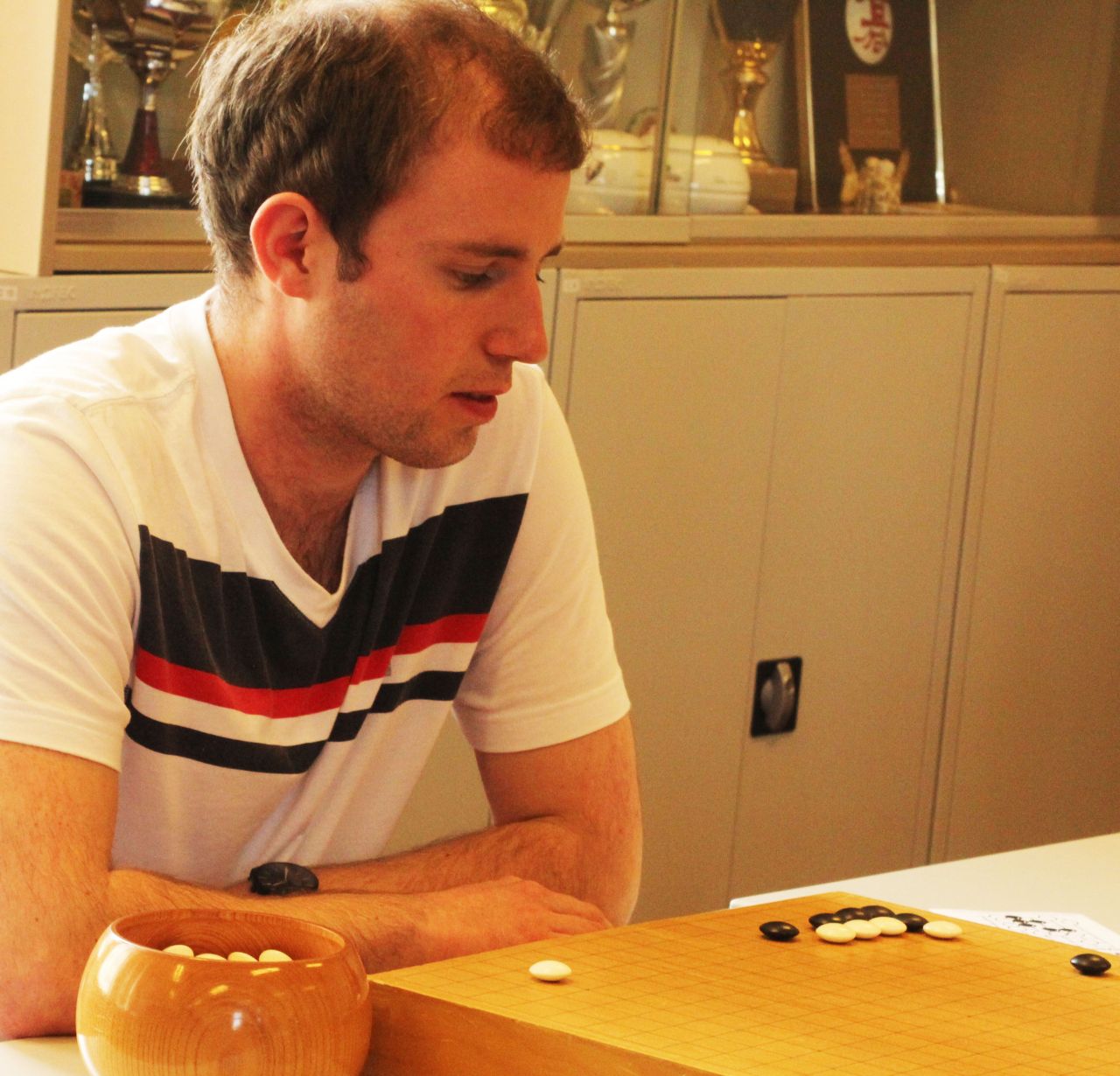
 France
FranceI was at home during the matches. I was very excited about it, but not excited enough to wake up at 5AM. On the day of the first game I woke up around 8AM and immediately went online. They were already playing the endgame, so I watched Michael Redmond's live commentary on Youtube to find out who was winning. Redmond kept saying that AlphaGo was ahead, but I didn't really believe it until Lee Sedol resigned. I was in shock, I had thought and hoped that he would win at least the first game, even though AlphaGo would in time inevitably triumph.
I still had faith in Lee Sedol for the following matches, thinking that he might have needed a game to adapt to the exceptional conditions and to AlphaGo's play. However, after the second and especially the third game, like most people I gradually lost hope that Lee Sedol would win even a single game.
The third game made a big impact on me.
In the first fight in the opening, it was Lee Sedol who was attacking, but then actually ended up as the one under attack. The game looked over almost immediately. At that point it seemed to me like AlphaGo hadn’t shown its true strength before and that it was already miles ahead of human level.
The fourth and fifth game made me reconsider this: AlphaGo was capable of making real mistakes, even when it wasn't comfortably ahead.
I was very happy Lee Sedol won game four, especially in such a dramatic fashion. However, it still seemed that the only way to beat AlphaGo was for it to make a clear mistake, like its bad answer to move 78.
Summing up, my opinion changed after almost every game. It's safe to conclude that I didn't really know what to think about the results and AlphaGo's level. Like I said, I initially thought Lee Sedol would win, so it was a big shock for me that he lost. At the same time, the matches received quite a bit of attention in the mainstream press, which generated great publicity for go.
I think it's fantastic news, because we will discover so many new things about the game. AlphaGo's matches against Lee Sedol were just a little taste of how little humans know about go. Before the event, I thought top professionals were not that far from perfect play, but I was clearly wrong.
I hope AlphaGo will be available to the public at some point. If it happens, it will be like having a top professional teacher at home. After only five games, thanks to AlphaGo many new ideas have appeared in professional play, so we can't overestimate the impact a public version of AlphaGo would have on the go scene. I do regret the fact that the "romantic" part of go, the fact that human intuition was a big part of the game, will make way for cold winning statistics. Go is a very free game, several options are always thought to be possible, and now we will discover that what we thought were possible moves, were in fact mistakes. But I think the curiosity of discovering what the game is really all about surpasses this sadness.
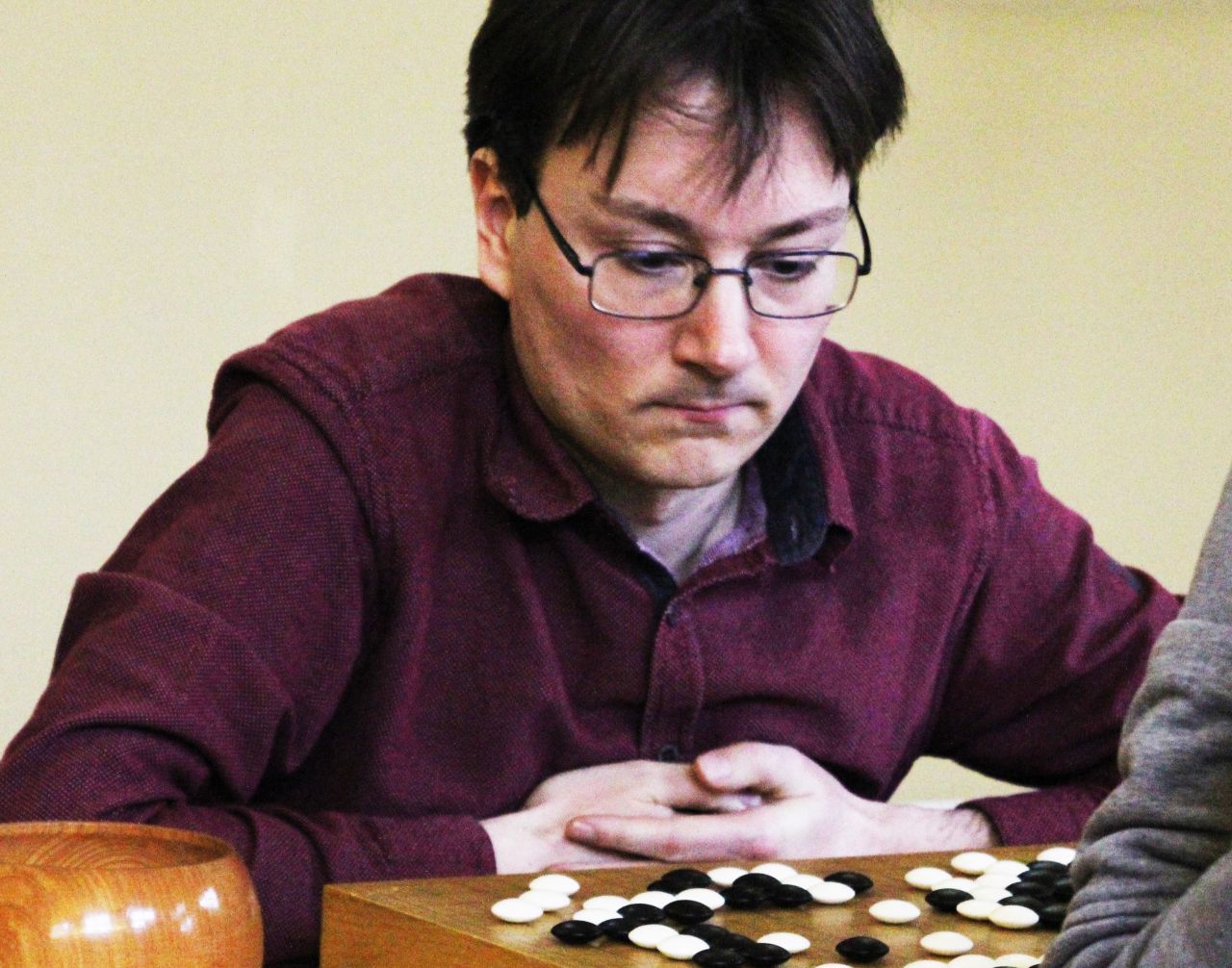
 The Netherlands
The NetherlandsI was at the European Go Cultural Centre in Amstelveen, doing a live commentary for game one and giving several interviews for Dutch television and radio. The other games I checked up at work.
I didn't know what to expect, so I was quite careful with commentating the first game. Overall I felt a bit disappointed with the quality in the sense that not one game was countable at the end. I have the feeling that Lee Sedol's style of play, which is rather poor fuseki-wise and then focuses on creating complexity and even leans towards overplays, suited the solid AlphaGo style. It would have been interesting to see some solid Lee Changho style, at least in one game, to get a countable score and some estimate on how strong the program really is.
The future of go I see as mostly positive: all the publicity in the wake of AlphaGo and upcoming matches put go on the map big time. Then there's a deeper understanding of the game to be had. Once commercial AlphaGo versions start to appear the game will change similarly to chess before us, which would be a bit of a shame I suppose, but one can't stop progress.
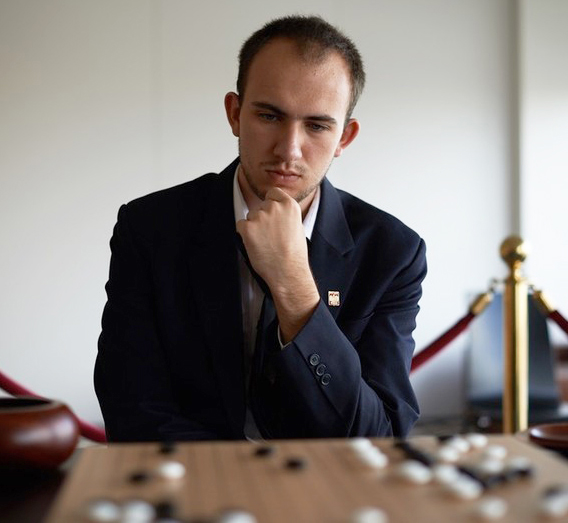
 Poland
PolandI was in Beijing at the Ge Yuhong Weiqi Academy at the time. I thought Lee Sedol would win 5:0. I was wrong. Honestly, I haven't seen all the matches, just two or three, but AlphaGo played better. I was a bit upset after I got to know the final result - 1:4 - but right now I think it was all for the better, for the promotion of go worldwide.
In my estimation, in about ten years most people will know what go is. The last century was “the age of chess”, but the 21st century is and will be “the age of go”. Asian countries like China, Korea and Japan are developing very fast. We will get to know the history and culture of these countries, and go is a pretty big part of it. Moreover, people used to think that sport is just a physical thing, but now there is a growing belief that mindsports are also sport.
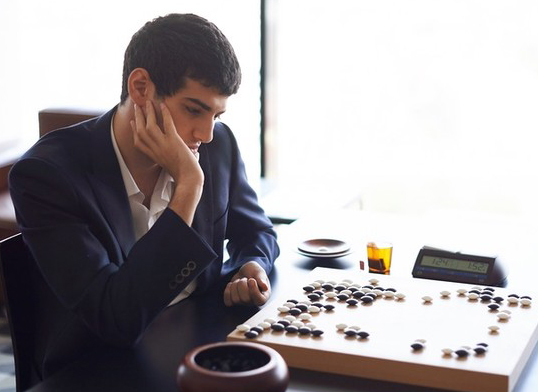
 Israel
IsraelAt the time of the Lee Sedol matches I was in China. I watched the matches through streams featuring top Chinese professionals like Ke Jie and Gu Li.
I followed the games, so it wasn't some out of nowhere surprise like it was when I heard about Fan Hui's loss. When I heard that Fan Hui had lost to AlphaGo, I knew it was just a matter of time.
Of course I was a bit sad that Lee Sedol lost and that go lost some of that mysteriousness about it, but I was also happy to see the small boost it gave to new players, and also Google showing us what a well organized go event can look like. Overall I think it was positive.
Computer go programs will find their place as (mostly) learning tools and I don't think this breakthrough will change much otherwise. Hopefully Europe and North America can become more significant in the worldwide go competition soon. The new European and American pro systems already initiated progress.
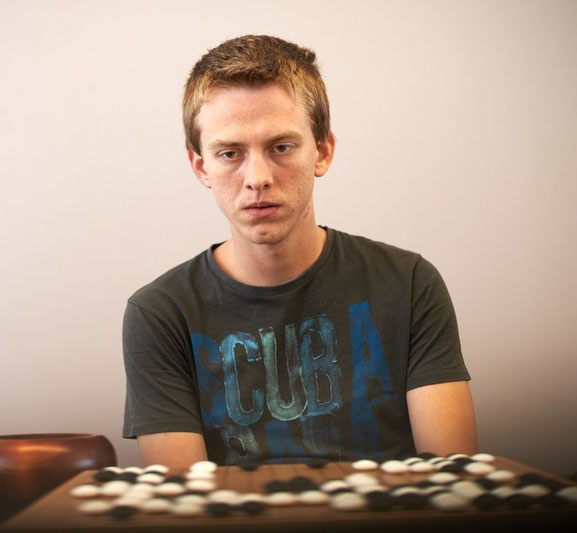
 Slovakia
SlovakiaIt was a standard week in my university studies in Bratislava, Slovakia. The matches started at 5-6AM local time, so it was a bit difficult to watch the whole thing. But of course I skipped some classes and enjoyed the games. I also watched some games together with local go players. I felt impressed and shocked, especially after the second game. At that time I was already quite sure Lee Sedol had no chance.
I think go will develop in the future. The publicity for go gained by the AlphaGo-Lee Sedol match was really big. Even in a small country like Slovakia, people now know about the game. Some time after the matches, a stranger started talking to me on the street: he recognized me from an interview about AlphaGo that I did for television.
Go has no reason to stop developing, just because computers started to be good at it. I don't feel any changes right now.
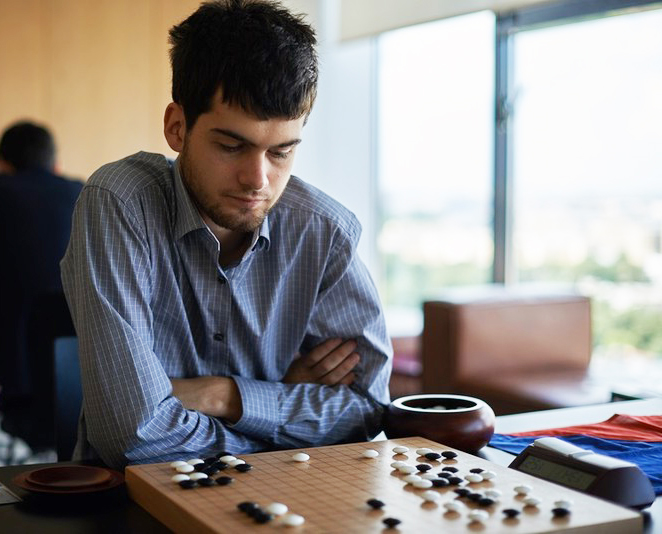
 Czech Republic
Czech Republic My prediction before the match was a 4:1 win for Lee Sedol, but I was absolutely naive. AlphaGo brought go to new heights and the program is now probably already one stone stronger than the top professional players. AlphaGo’s play brought new inspiration for many go players. During the AlphaGo matches, I played in a local tournament in Frýdek-Místek. It was clear that the players were more interested in Lee’s victory of game four, than in the Czech tournament.
In Europe, especially thanks to CEGO and its training programmes, the players are becoming stronger. Our strongest players, like the new European professionals, are making the gap between Europe and Asia smaller every year.
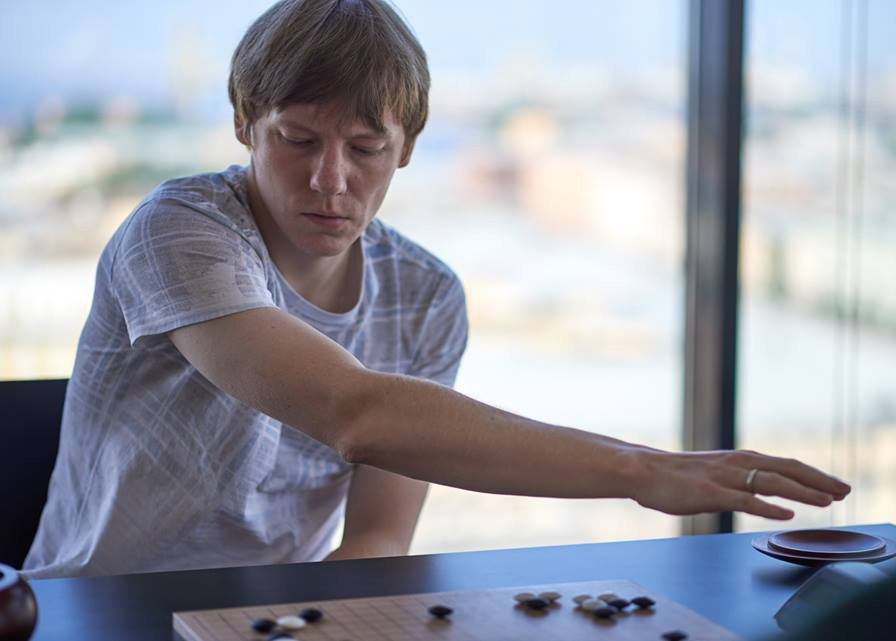
 Russia
RussiaI commented the last four games online on youtube with Natalia Kovaleva. I really liked that experience.
When it comes to the result, I think that Lee Sedol was not prepared to compete with AlphaGo. He didn't take his opponent serious in the first game, tried to find AlphaGo's weaknesses in the second and third, and only played full strength in the last two games. I think their levels were about equal.
I don't expect big changes for the top players. It was a great result for artificial intelligence but that's all. On the other hand, with the help of Google many people knew about the match and found out about the game of go.
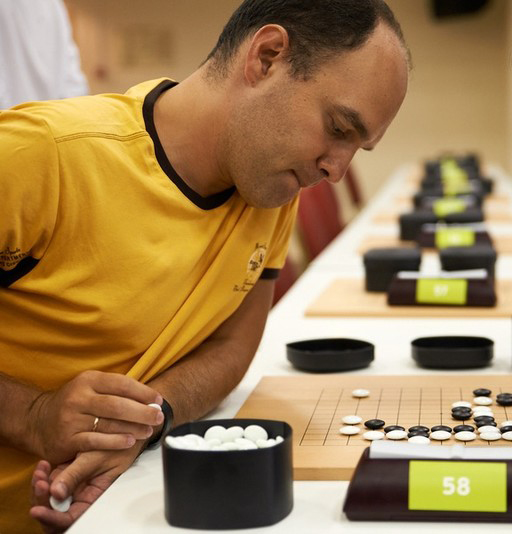
 Russia
Russia I reviewed a few of the games on the Youtube channel of the Russian Go Federation. Including a live review of game one. I also translated a lot of articles from Korean and wrote some myself for the Russian Go magazine and for local newspapers.
I think it was a big mistake of Lee Sedol and the Korean Baduk Association to accept the challenge. It was necessary to test the program first, like Kramnik did before his match against Deep Fritz.
I feel that the version of AlphaGo that played against Fan Hui was not the strongest one at that moment. They decided to trick Lee Sedol and show him how weak AlphaGo was. The matches against Fan Hui were played by a much weaker AlphaGo: as we can see from the recent graph by DeepMind, version #18 can win 50+% games against version #13 on 3 to 4 handicap stones. Lee Sedol was sure that he could easily beat that version, but the program he played was 3 to 4 stones stronger!
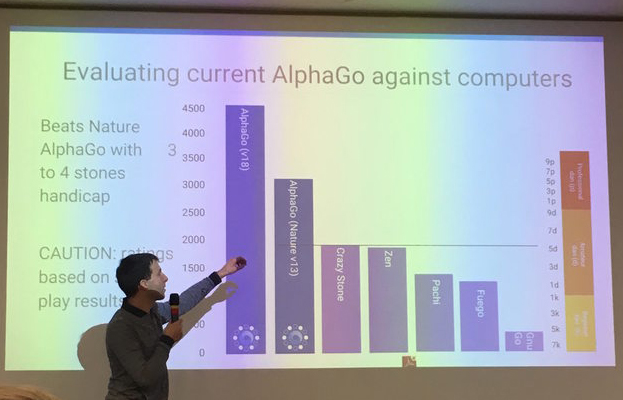
I like the behaviour of the creators of go programs like Zen or Crazy Stone much more. They often let their programs play in computer go tournaments. We can test Zen and Crazy Stone on KGS, we can see their progress. In case of AlphaGo, we only see a lot of secrets. Why was it necessary to create so many secrets?
Everything else is fine. It's good that programs can beat top players now, which means that it will be possible to study go at a high level at home in the near future, without having to visit China or Korea. Maybe we will see more star players outside of Asia.
Many more people know about go now and I would like to thank Google for this.
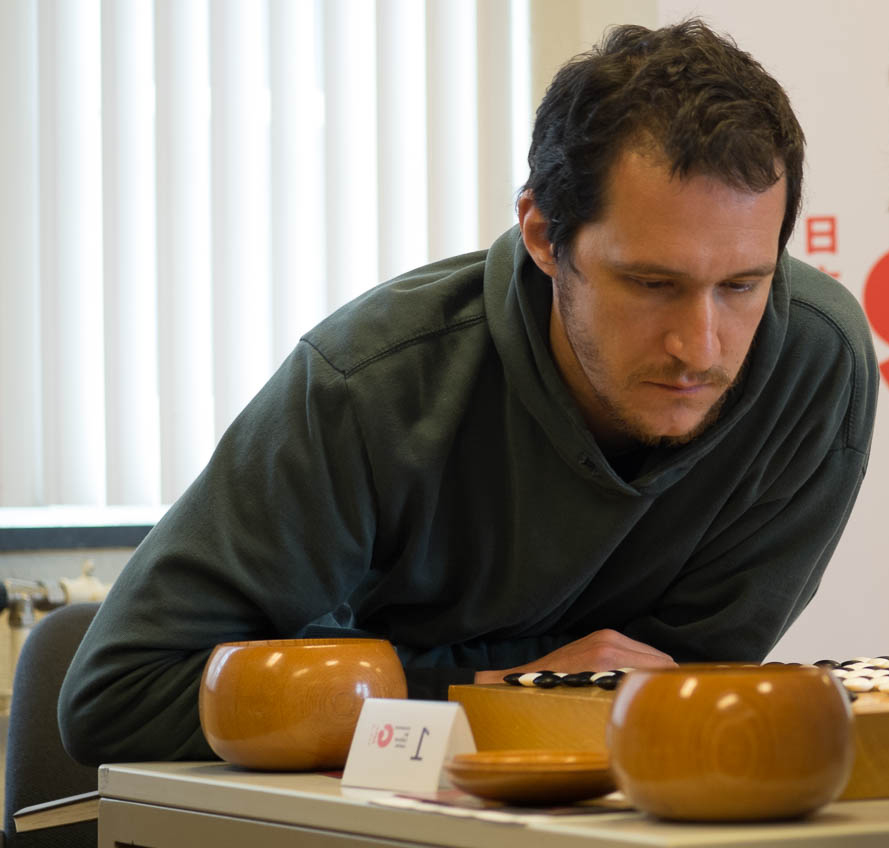
 Hungary
Hungary I was in bed. I didn't really care about the matches, because I thought that the breakthrough had already been made when AlphaGo beat Fan Hui. When LSD (Lee Sedol) lost, I didn't feel shock. I was just surprised: AlphaGo played a couple of awful moves - for example moves 106 and 130 in game one, clearly losing 5 to 6 points - and still won relatively easily. I'd thought that it was impossible to play crap like this against LSD and still win.
I think the impact of a program like AlphaGo on the way we play go, is not that big. Our society however, is messed up. There is this video, Humans Need Not Apply, I couldn't explain it better.
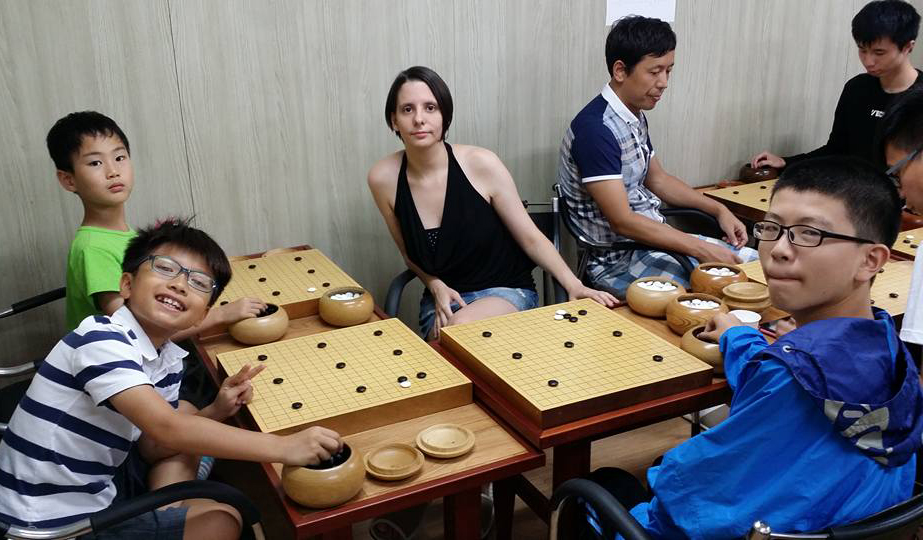
 Hungary
HungaryI was at BIBA – Blackie's International Baduk Academy – where I teach, in Gunpo City, Korea. We studied the games together with the students.
I didn't expect that the bot would win, based on the games that AlphaGo played against Fan Hui. Judging from those games, AlphaGo didn't look that strong. But it proved to have improved a lot since then.
The first game of AlphaGo against Lee Sedol was unexpected. Many Korean professionals reviewed the game live: they often made quick comments, saying negative things about AlphaGo's moves, and were all shocked when AlphaGo won.
During the second game, the professionals were much more careful with their comments, saying things like “from a human point of view” or “in human's eyes this move looks strange, but..”
After two games Kim Jiseok, one of the strongest players in Korea, made a bet with other pros that Lee Sedol wasn't going to win a single game. He said that he wouldn't mind losing the bet, because he would be happy if Lee Sedol could win.
The more games the professionals saw, the more they felt that AlphaGo was very strong.
Of course AlphaGo isn't perfect and when it is winning by a lot it makes mistakes that even an average amateur dan player wouldn't make. But that's simply because it's a bot.
Before the games, we heard that AlphaGo played on Tygem, and that it had very good results on the server. And obviously Google wouldn't have challenge Lee Sedol if they didn't stand a chance.
I've heard rumours that nowadays the latest AlphaGo can beat the old version by two stones or so.
The future of go isn't easy, but not because of AlphaGo. More people know about the game now and professionals have learnt from the matches.
Kim Seungjun 9p, the owner of BIBA, commented several games as lessons for our students. He believes AlphaGo is very strong, but he doesn't believe it could win against a professional who takes a two stones handicap.
Professional players usually do commentaries based on the flow of the game. When two strong players play, we can't understand everything they do, but we can get a feeling from the flow.
From the flow of the games, Kim Seungjun felt that Lee Sedol was doing okay, but later we realized it wasn't really like that. AlphaGo played a move that we would immediately consider to be a bad exhange. Later in the game however, it would suddenly feel like a great move.
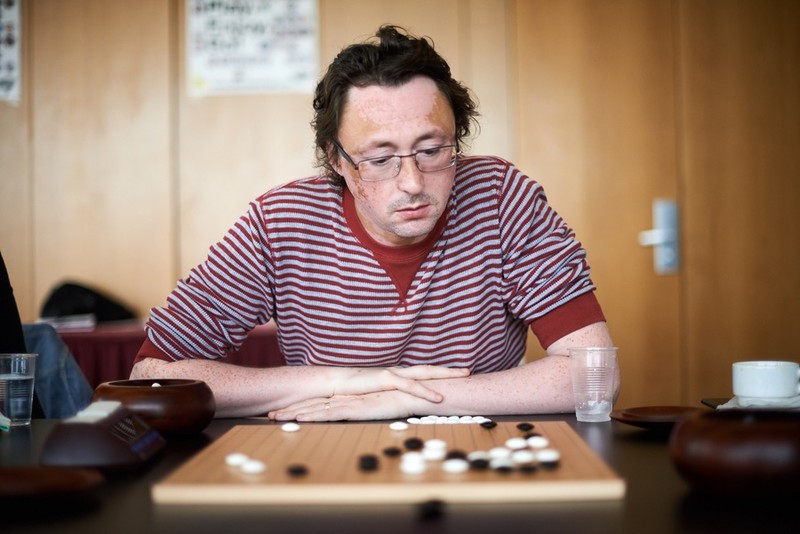
 Romania
Romania I was home during the matches, waking up at 5AM to watch them live with all the streamings on.
At the time I was sure Lee was going to win 5-0.
The results shocked me terribly. But the shock passed and I could enjoy the games more afterwards. The way AlphaGo plays is inhuman, its power of estimation is beyond us.
All in all it's a good thing and I want to see more clashes between top professionals and computer go. This can open up new horizons in the game of go.
- Would you practise against AlphaGo yourself? And do you think that we start to play differently when we have access to such a program?
Sure I would. But I don't think our way of playing can change too much. AlphaGo's biggest strength is to know exactly when it's leading and to then close the game. We’re not able to do this. Even when we know we're leading a game, finishing it off is super hard. But AlphaGo has shown that he can. Or she. Computer go could change some theory about the opening, but reading and fighting will remain the same.
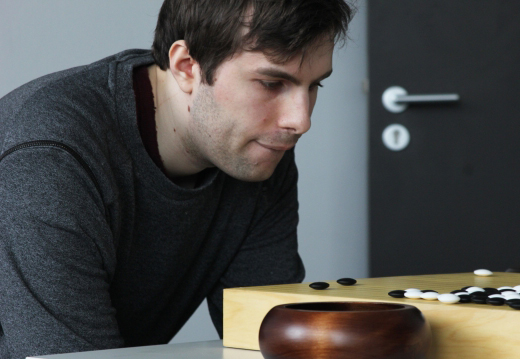
 Sweden
SwedenOf course I watched the games live.
After the first game I thought that Lee Sedol lost by underestimating AlphaGo and that he missed move 102. Later it became clear that AlphaGo was stronger than we ever could have imagined.
Overall the AlphaGo event brought a lot of positive attention to go.
It seemed that everyone took notice of the event, from colleagues at work to friends and family. Google generously donated the prize money to go organisations such as the EGF, which will help develop go in Europe.
I still think the future of go is positive. I believe the next generation of players will be stronger than ever before, due to the aid of artificial intelligence. However, the negative impact of AI development is that online go will suffer. People using bots to tell them where to play, has already become widespread on servers such as KGS. This will affect online competitions. Perhaps we can learn something from the chess community in regards to how to handle this issue.
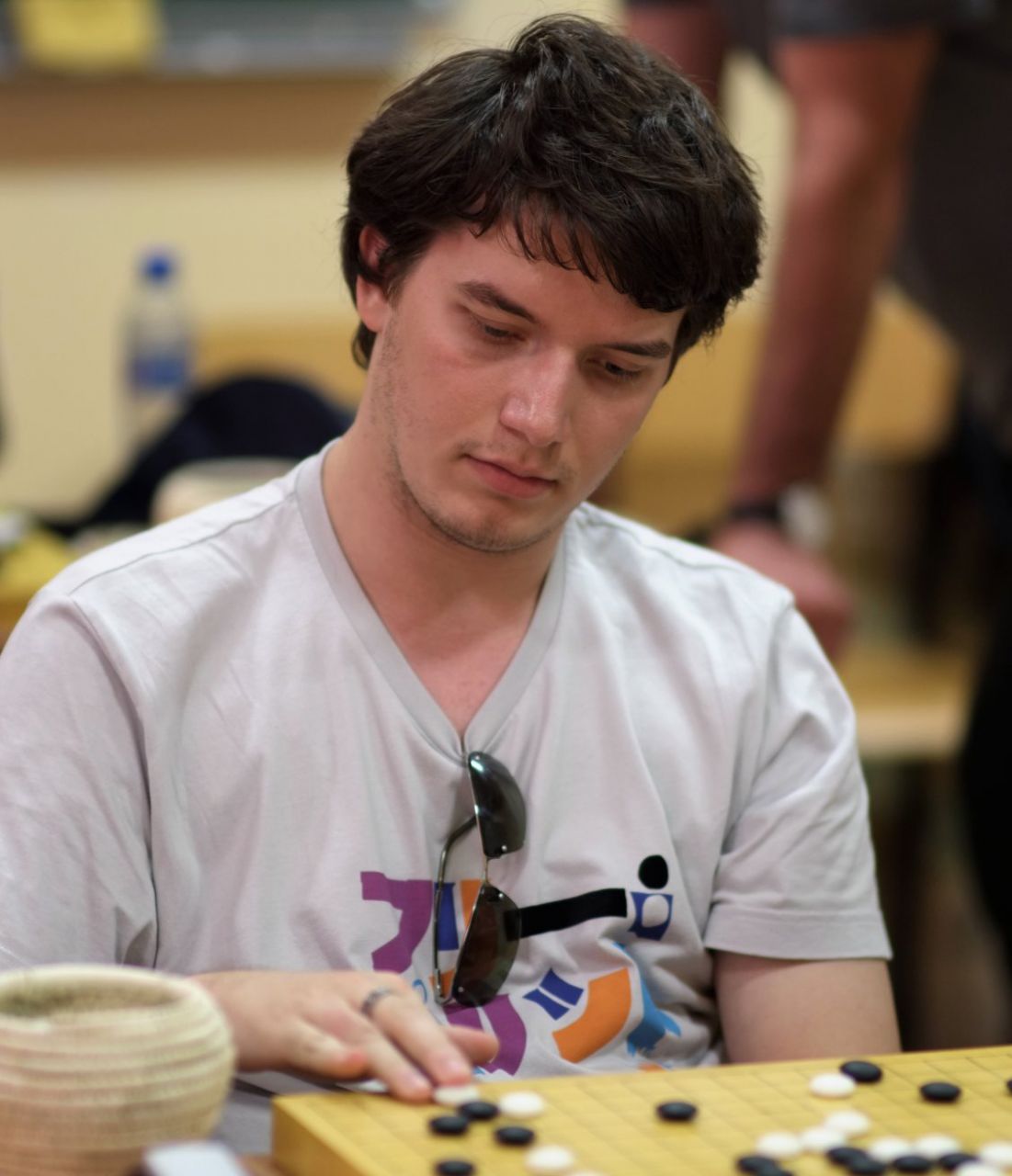
 Serbia
Serbia I was in Japan, watching the streams of professionals reviewing the games live. In the first game I didn’t realise how strong AlphaGo was, but after the second game I already thought it was the strongest “player” around.
When chess computers became strong and became available for PC, people started using them to play online. They would play against each other whilst using these computer programs to analyse their possibilities. Because of that a lot of people stopped playing online and started going to clubs to play live instead. I hope the same thing happens for go.
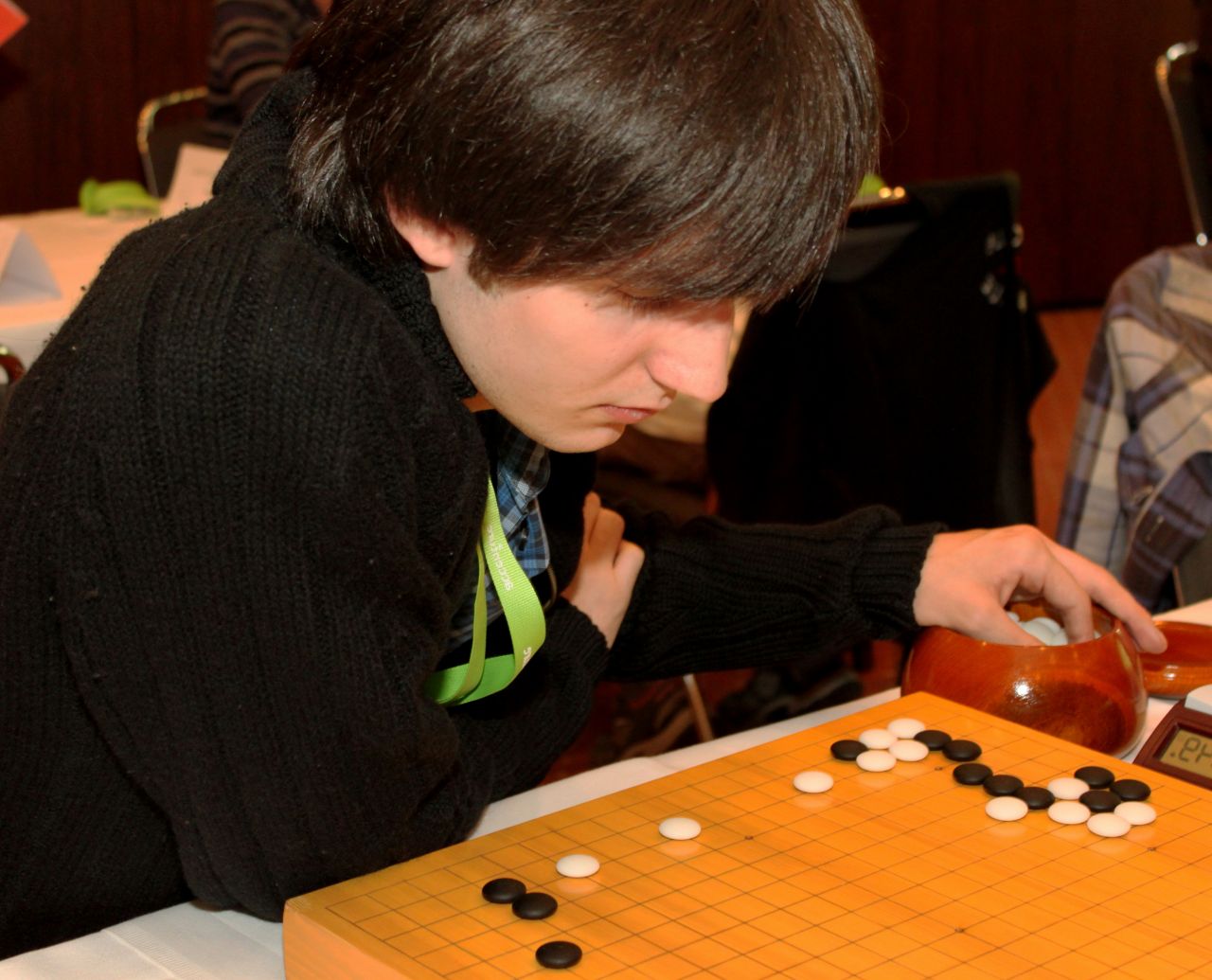
 Germany
GermanyI was at home, preparing for my exams. Unfortunately I couldn't follow the games live, but I watched the replays instead. Before the match I thought Lee would have a tough fight ahead of him, probably tougher than he expected. Still, I hoped against hope that he would win.
After seeing the way the first two games played out, I was surprised that Lee managed to win one game in the end. My first reaction to the outcome of the match, was the fear of e-cheating that could be the result of such a strong computer program. I love go because it is the direct confrontation of your and your opponent's mind. The suspicion that your opponent might be cheating, ruins it.
Apart from that it was positive. I gave some interviews in German to use the new attention for the game for the better. Go needs more attention and one approach could be to work together with the chess comunity: maybe organize common tournaments with both chess and go. Afterall, weiqi is often translated as 'chess'.
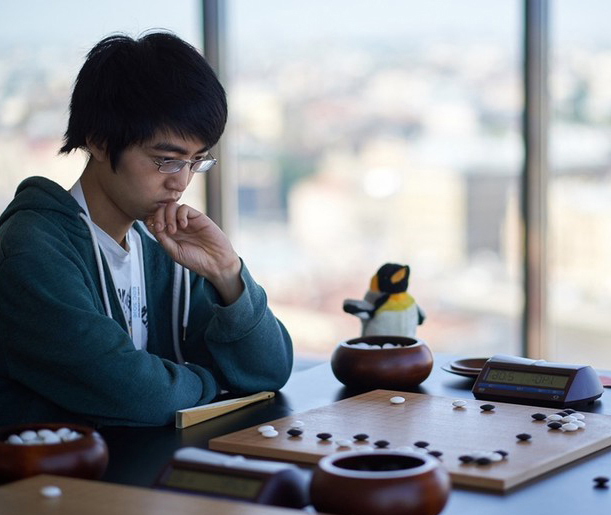
 Austria
AustriaI slept through the games, certain to find out the next day that Lee Sedol had won the first game. But he didn’t. Then he lost the second game. By then I gave up any hope. Lee Sedol’s playing seemed so timid and scared in the second game. He regained his composure for the third game, but after the break AlphaGo simply played too brilliantly. Regarding the win in the fourth game, I'm sure everybody, including me, was celebrating it.
That win by Lee Sedol is the proof that AlphaGo hasn't reached divine perfection yet. After Lee’s move 78, AlphaGo seemed very confused. I heard that self-learning artificial intelligence will be used for other technologies, not just for go. In that regard, it doesn't matter for me whether AlphaGo’s victory has a positive or negative impact on go, as long as humanity can advance in technology. Even if this would mean a negative effect on go, it would be irrelevant as the AI can be used for the greater good.
That said, there is still work to be done. If getting tricked by Lee Sedol can be compared to a car accident by a self-driving car, AI’s behaviour is more dangerous than useful.
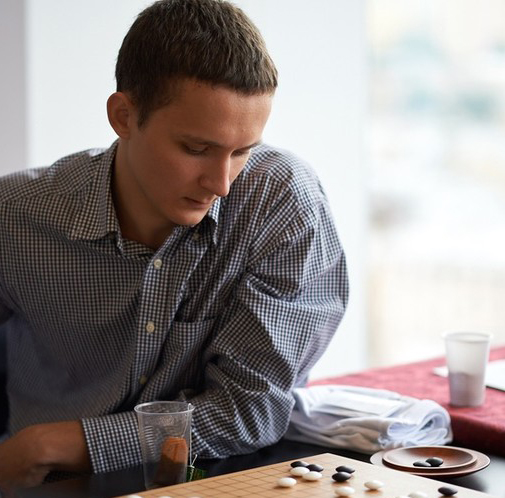
 Ukraine
UkraineWhen I entered my workplace - I work as a programmer - the games were already in their late stage, so I launched Tygem and checked how Lee Sedol was doing. Later I reviewed those games as well and I read commentaries by Kim Myunghwan and Alexandre Dinerchtein. I also talked about the matches with the other Ukrainian go players, especially with our national team: me, Andriy Kravets, Bohdan Zhurakovskyi and Dmytro Bogatskyi. We have a group chat on Skype where we occasionally talk about go news. We discussed all Lee Sedol - AlphaGo matches. Sometimes we followed the game live and analysed the current board position.
I wanted Lee Sedol to win and believed in him until the last moment. The result didn't disappoint me much, but it surprised me.
It’s difficult to judge the future, but I believe go is only starting to develop in Europe. We constantly get closer to the level of Asian professional players. I hope the fact that a machine is already better than us will not reduce the number of people who wish to play this game.
Naturally public access to AlphaGo would change some parts of the game, especially fuseki. Actually, since the matches, go has already changed. There are at least a few moves and ideas that were first played by AlphaGo that became popular among top professionals and amateurs.
- Would you practise against AlphaGo yourself?
To be honest, I'd prefer to practise against Lee Sedol. So far I don't really have any sympathies for computer go programs. Go is for humans. Playing against AlphaGo can be compared to playing football against a perfect robot. Might be interesting once or twice, but it is much more fun to play regularly against humans. Research made by computer programs like AlphaGo can be interesting for humans, but nothing more than that.
Final note:
As you have read, the opinions are varied.
We would love to hear your take on the historical AlphaGo matches! What do you think the future holds for us?





